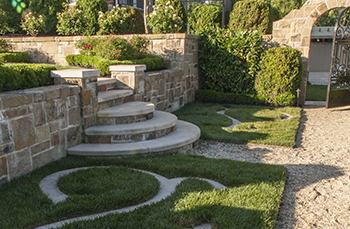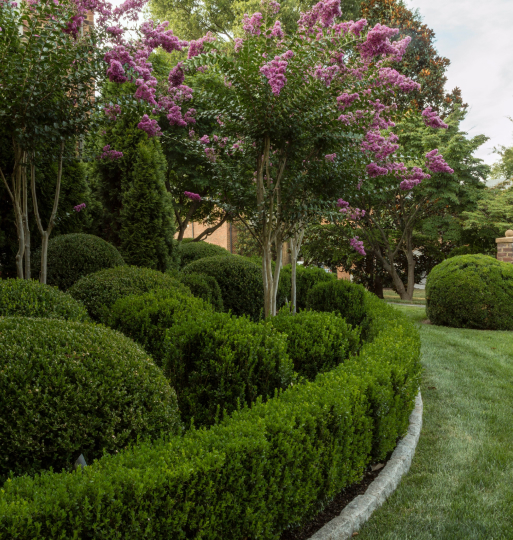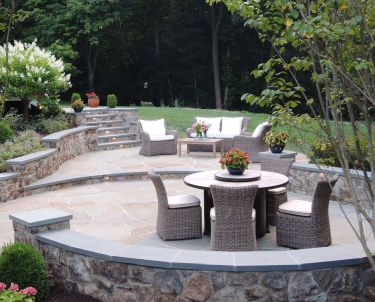
6 Common Landscaping Problems Northern Virginia Homeowners Face
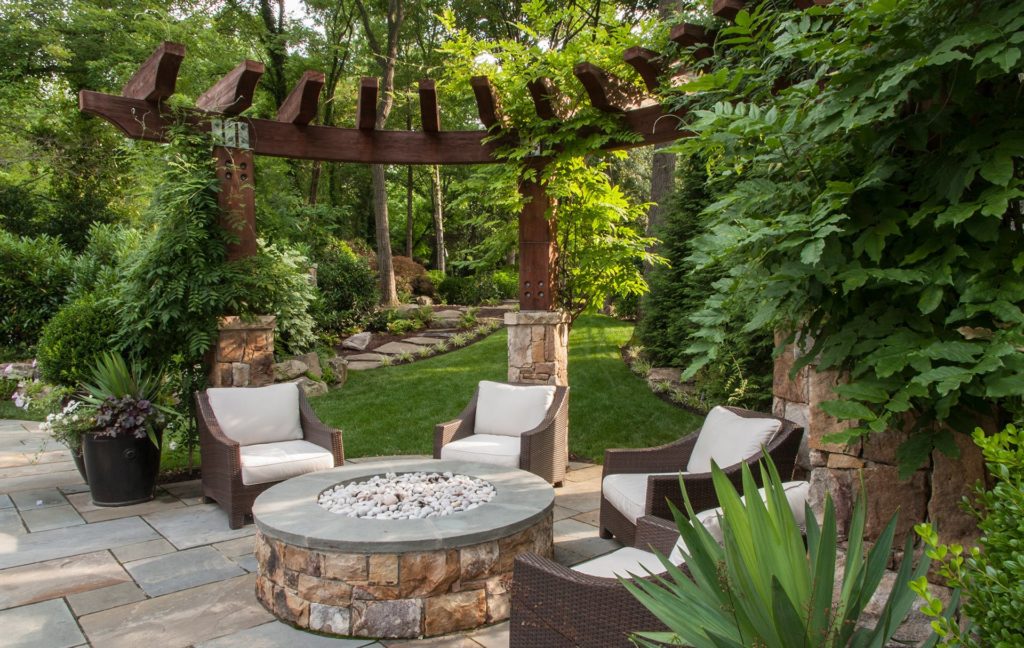
An attractive yard can enhance your home’s beauty and curb appeal while creating a great first impression with neighbors and guests. But maintaining a healthy lawn and landscaping can be more challenging than it seems, and many things can go wrong.
Here are six of Northern Virginia’s most common landscaping problems and some helpful tips to correct them.
1. Terrain Erosion

Dry, loose soil can wash away during heavy rains, especially on sloped or hilly areas of your yard. Irrigation may help slow the soil loss, but it may not solve the problem completely. Some long-term ways to solve erosion issues include:
- Growing native plants: The root systems of native grasses and plants work to keep the underlying soil in place, preventing erosion. Because the plants are already acclimated to the environment and soil conditions, they’ll grow easier and last longer.
- Hardscaping: Features like rock borders, dry creek beds, or pavers can slow water movement and retain soil in a sloped yard.
- Retaining walls: In steeper or sloped areas of your yard, retaining walls can be built to hold soil in place and prevent erosion.
2. Mushroom Growth
Mushrooms and other fungi thrive where there is plenty of moisture and decaying organic matter. Although fungi are essential for converting that matter into useful nutrients for your grass and plants, an overabundance of fungi can harm plant growth.
To prevent fungi from taking over your yard, ensure adequate drainage to maintain healthy moisture levels. Get rid of dead leaves and grass to reduce organic debris, and if your yard has too much thatch, consider dethatching your lawn.
Thatch is the layer of organic matter that forms between the grass stems and the soil; ideally, it should be less than an inch thick. To check the thatch layer, use a garden trowel to cut out a small section of sod.
3. Dead Grass
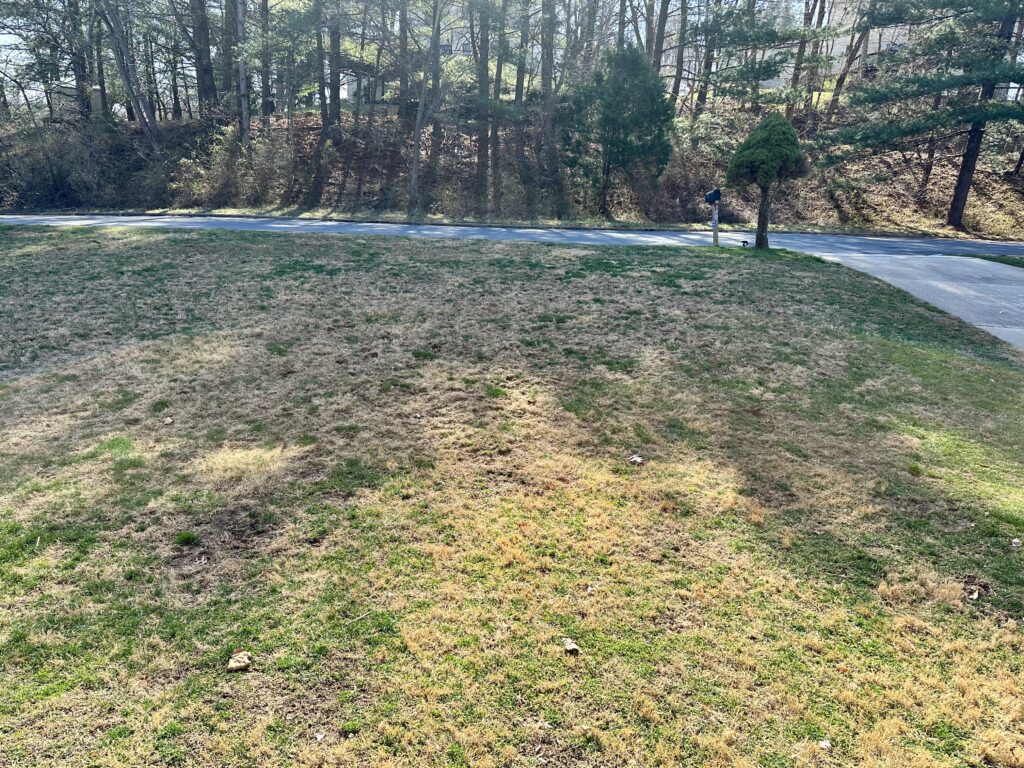
Grass can die for several reasons, from under-watering or over-watering to nutrient deficiencies, diseases, fungal growth, pests, spilled fuel, pet urine, excessive fertilizer, or too much shade.
Make sure your lawn has adequate drainage and healthy moisture levels, check the pH of your soil, and follow the instructions carefully when using fertilizers, lawn treatments, or pest control products.
If lawn problems persist, consult a professional landscaping company to determine the cause of the damage and find the best solution, whether that’s fertilizer applications, aeration, drainage modifications, or better irrigation.
4. Standing Water
Excessive water in your yard can kill plants and grass, attract pests, or encourage the spread of fungi and plant diseases. The main causes of moisture issues include:
- Poorly draining soil: Soils in Northern Virginia often include clay, leading to poor drainage. Adding soil amendments like compost, vermiculite, or peat moss can keep the proper amount of moisture in the soil while allowing any extra to drain off naturally.
- Improper grading: Low spots in the yard can allow water to pool, killing plants. An inadequate slope away from your home can let water collect near the foundation, damaging your basement or crawl space. To correct grading issues, it’s best to hire a professional. French drains, regrading, or other drainage changes may be required.
- Lawn thatch: If the thatch in your lawn is over one inch thick, it can trap too much water in the soil, killing your grass. Dethatching and aeration can help restore proper drainage.
5. Lack of Privacy
Having a beautiful yard doesn’t mean much if you can’t enjoy it. If neighbors are too close for comfort, adding a barrier like a fence, a garden wall, or well-placed shrubbery can restore your privacy.
There are many types of fencing, and many are quite attractive. Taller garden walls or retaining walls can also add some privacy to create a natural fence, especially when combined with trees, shrubs, and other plants.
6. Destruction From Wildlife
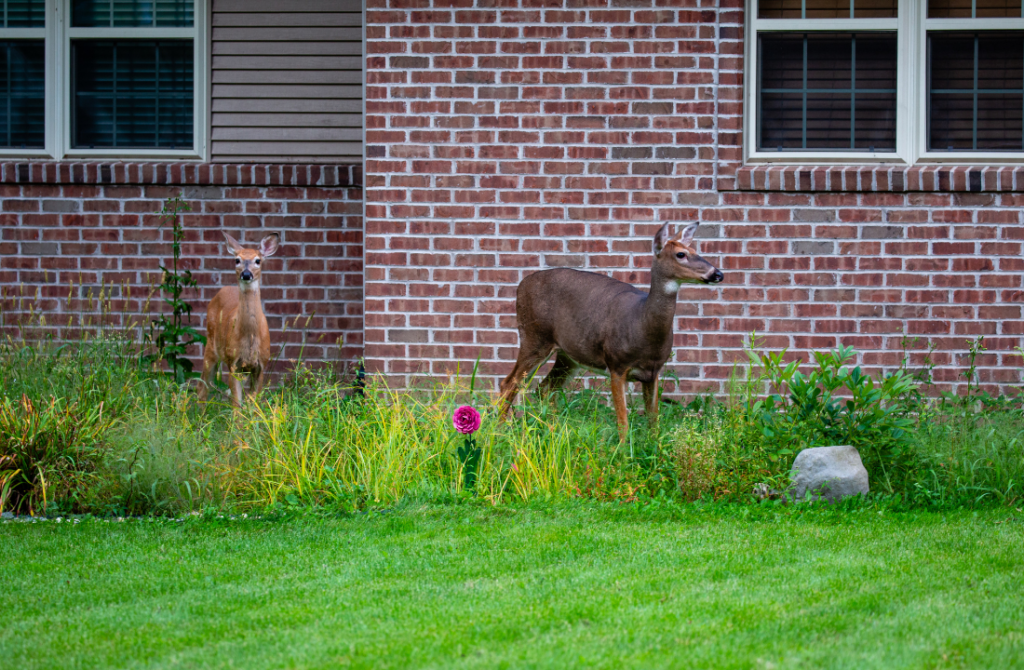
Deer, birds, rabbits, squirrels, and other animals can cause significant damage to your yard’s landscaping and gardens. However, there are many safe and effective ways to discourage wildlife activity without harming the animals, pets, or children.
These can include fencing off areas of your yard and removing sources of cover for animals, like brush piles, leaves, or grass clippings. Keep garbage secure and remove attractants like pet food, animal feed, or grain.
Schedule Professional Landscaping Service With Wheat’s Landscape
When you need expert help to solve challenging lawn care and landscaping problems, contact Wheat’s Landscape. Our company has served Northern Virginia, Maryland, and the DC area since 1978.
We’re a full-service design-build landscaping company that can help with everything from full landscaping builds, patios, and outdoor kitchens to lawn care, tree care, irrigation, maintenance, and more.
We have experienced professionals with a keen eye for detail, a massive portfolio of successful projects, and numerous industry awards. Count on us for all your landscaping needs in Northern Virginia and surrounding areas.
Schedule your free landscaping consultation in Northern Virginia or the DC area.




